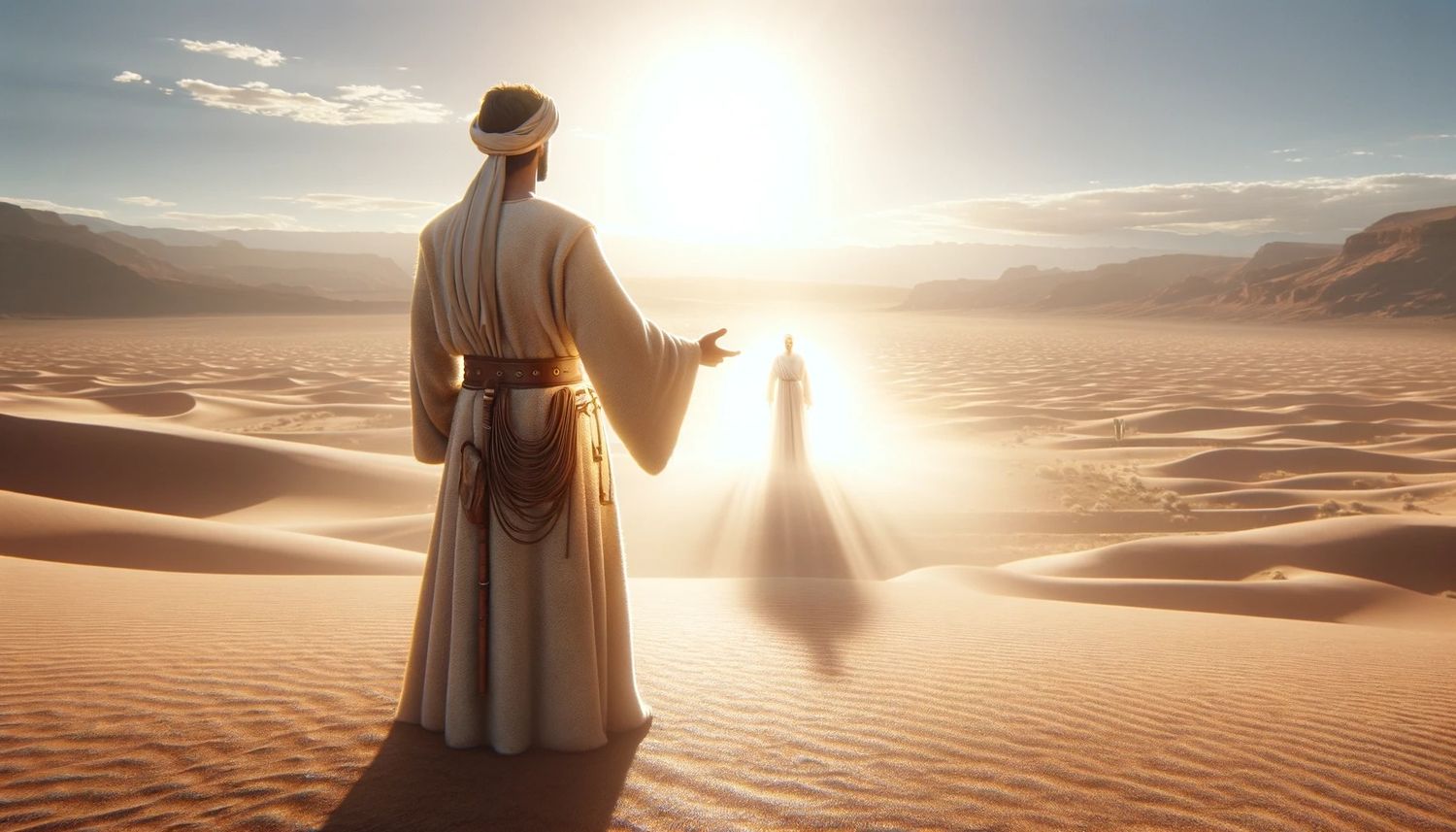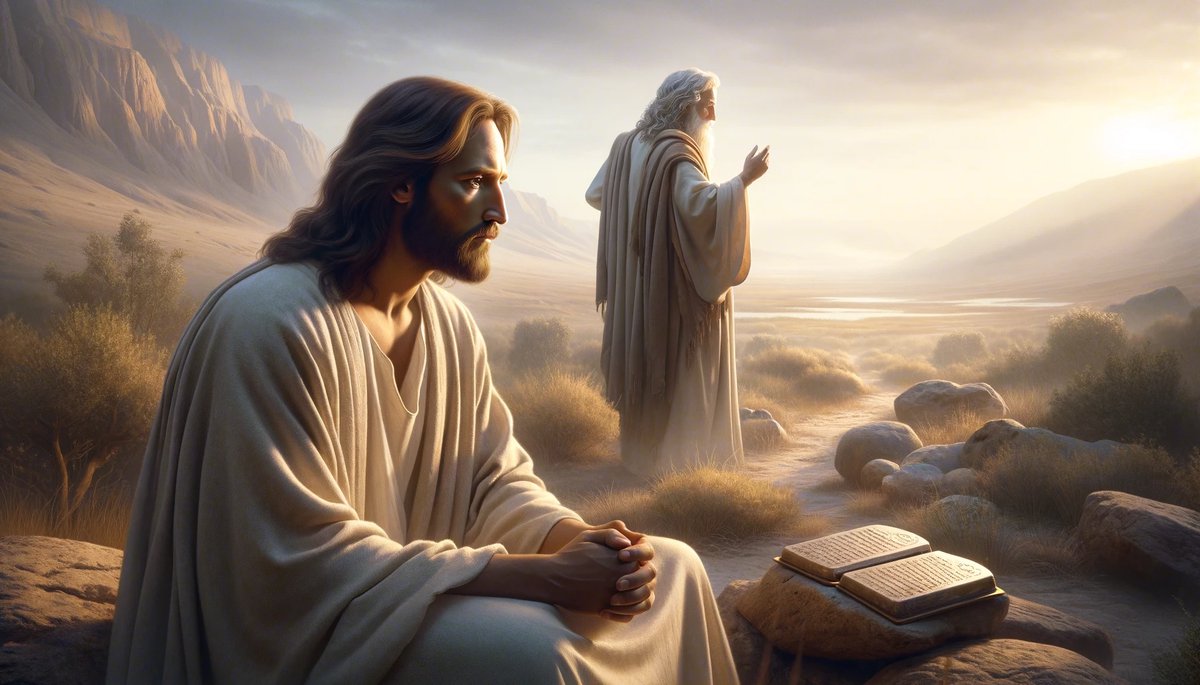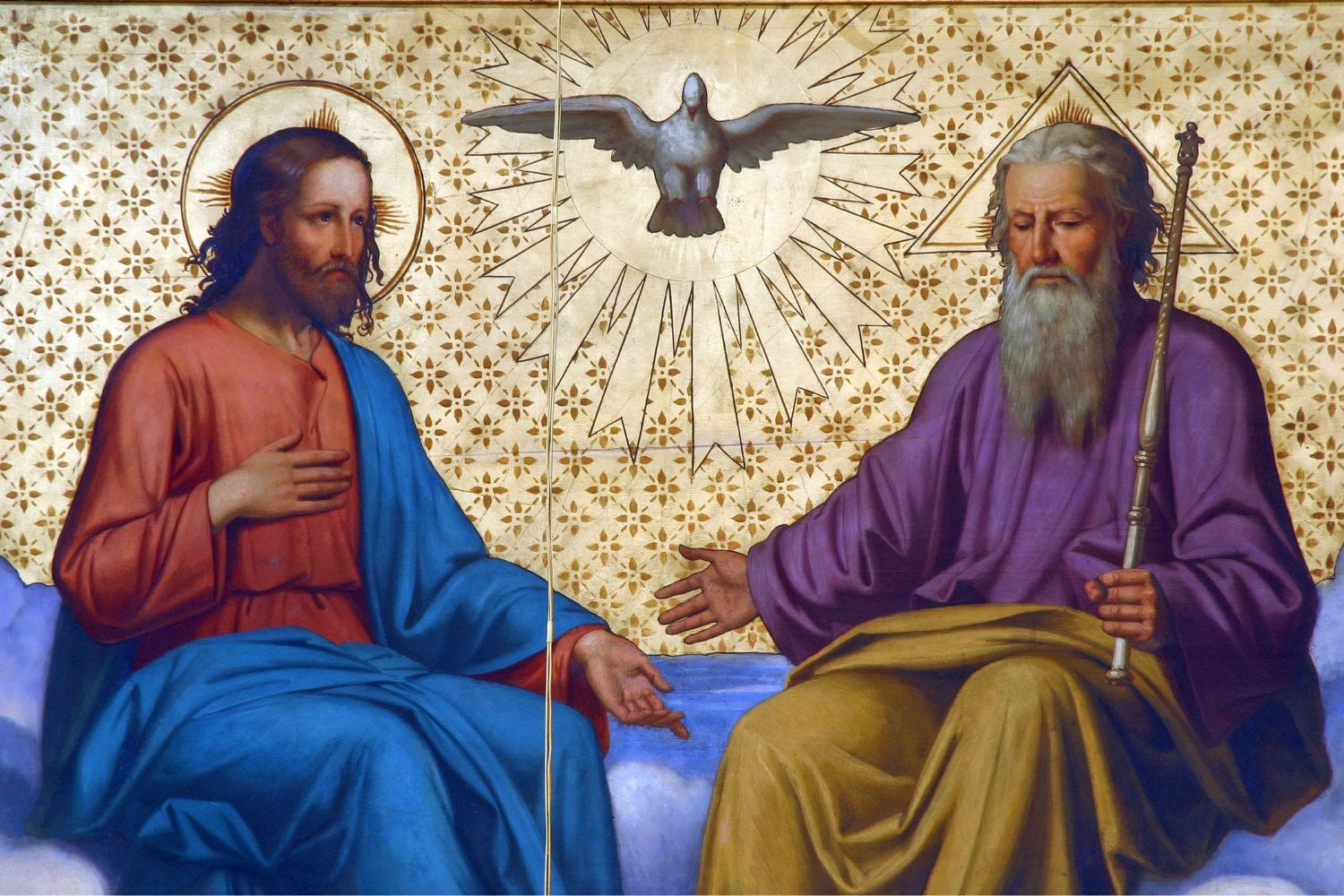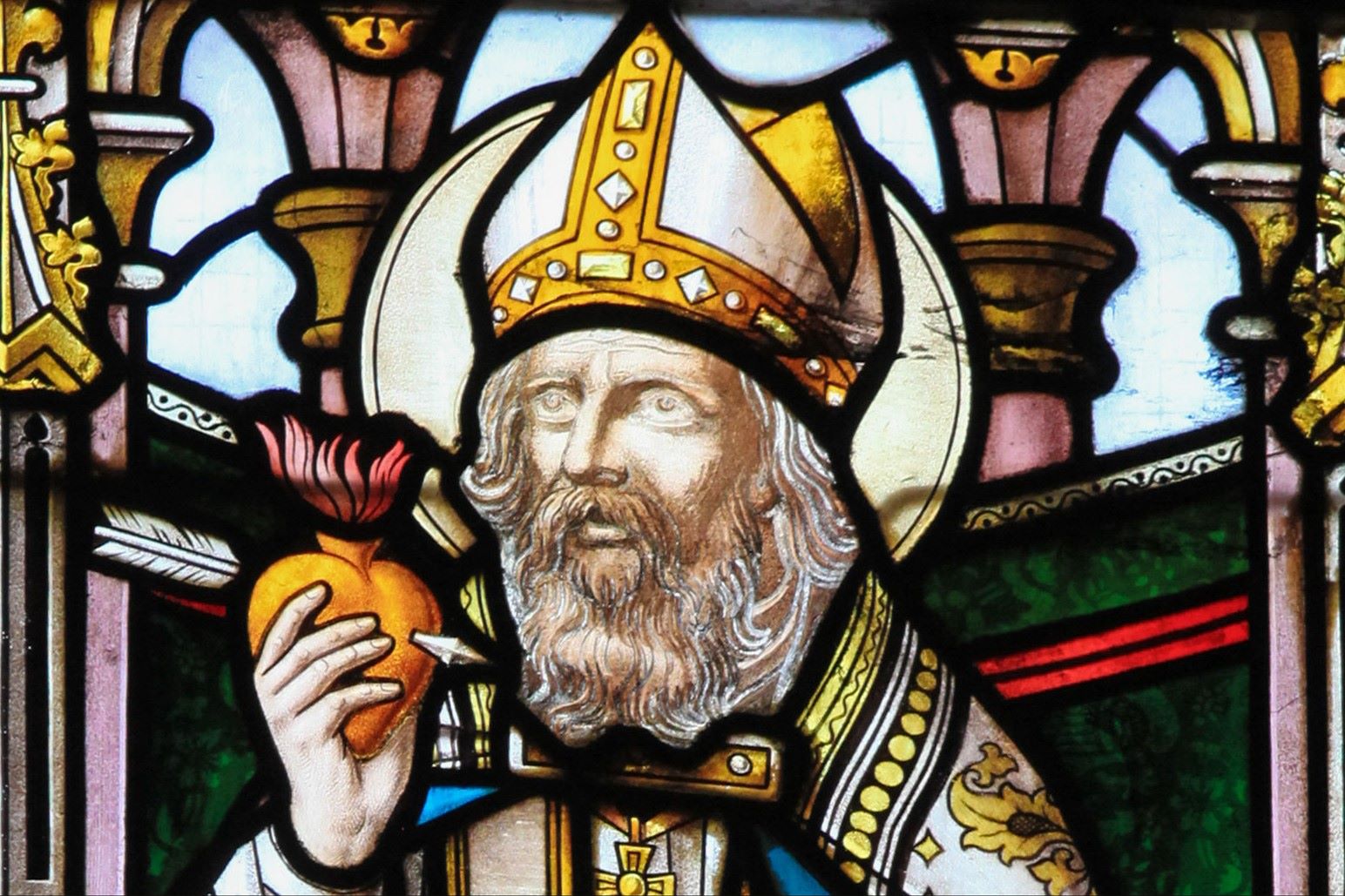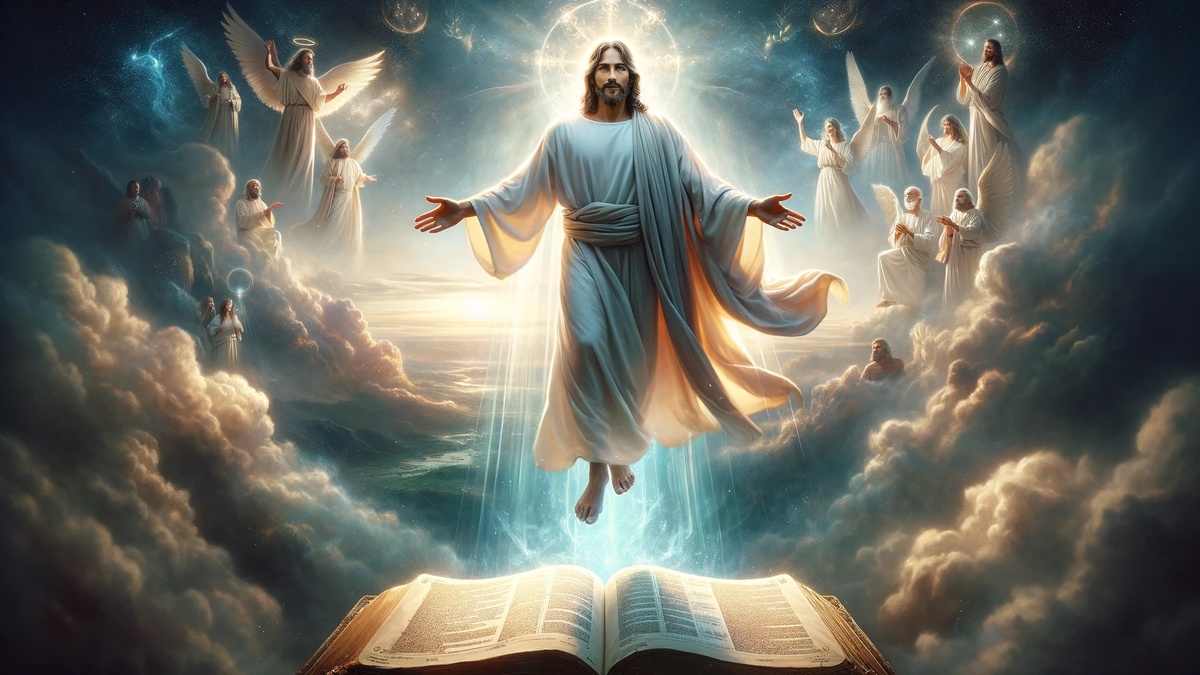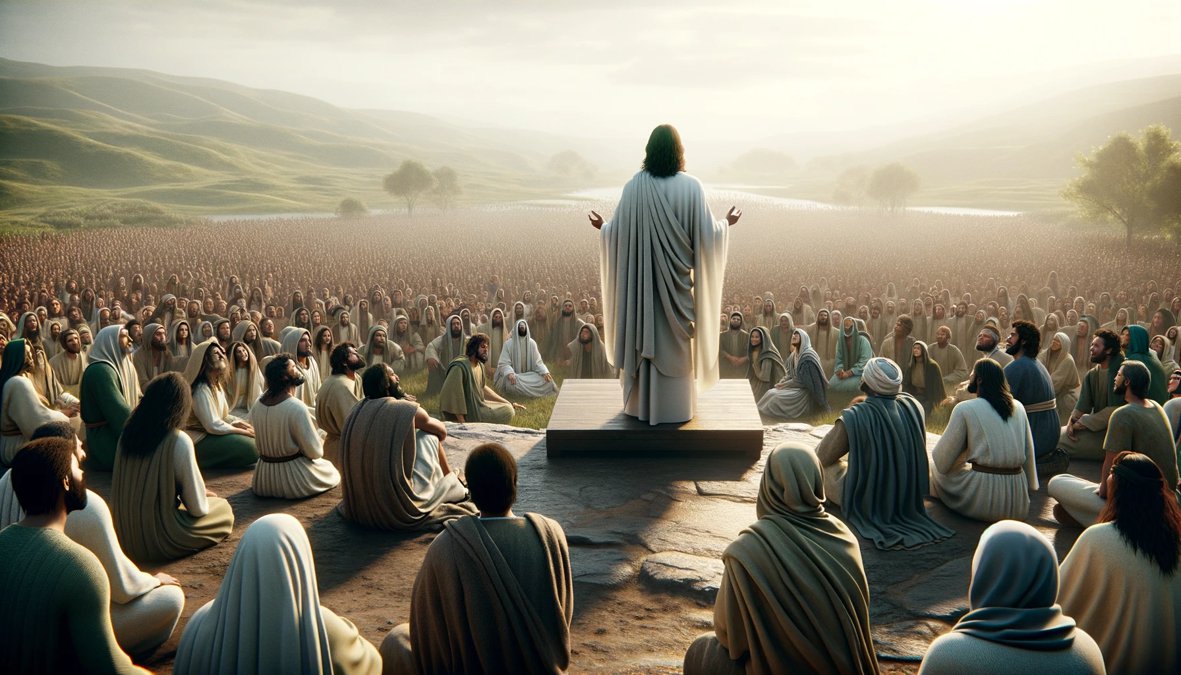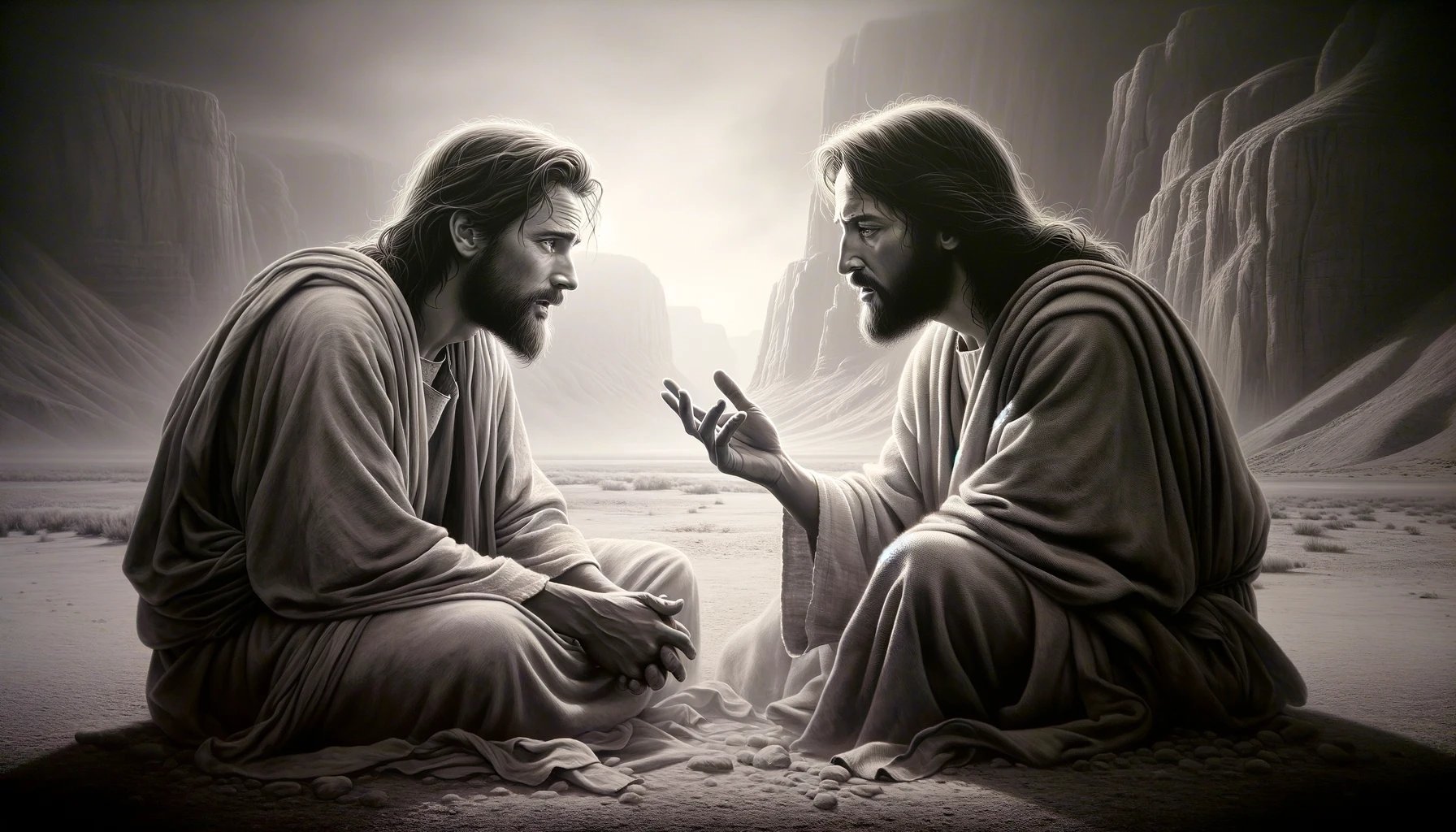Home>Christian Videos>Bible Stories>What Did Muhammad Say About Jesus Christ


Bible Stories
What Did Muhammad Say About Jesus Christ
Published: March 3, 2024
Ericka Andersen, an editor at Christian.net, expertly merges digital strategy with content creation, focusing on faith and societal issues. Her communication skills enhance the platform's engaging narratives, fostering meaningful dialogue on belief's impact on society.
Discover what Muhammad said about Jesus Christ in the Bible stories. Explore the Islamic perspective on Jesus and his teachings. Gain insights into the connections between Christianity and Islam.
(Many of the links in this article redirect to a specific reviewed product. Your purchase of these products through affiliate links helps to generate commission for Christian.net, at no extra cost. Learn more)
Table of Contents
Introduction
What did Muhammad say about Jesus Christ? This is a question that has intrigued scholars, theologians, and believers for centuries. The relationship between Islam and Christianity, as well as the perspectives of their respective founders, is a topic of great interest and significance. In this article, we will delve into the teachings of Muhammad regarding Jesus Christ, exploring the recognition, portrayal, and significance of Jesus in the Islamic faith. Muhammad's views on Jesus Christ offer valuable insights into the interfaith dialogue and the shared beliefs between Islam and Christianity. Let's explore the profound connection between these two influential figures in the history of religion.
Read more: What Did Buddha Say About Jesus Christ
Muhammad's Recognition of Jesus Christ
Muhammad, the founder of Islam, held a deep reverence for Jesus Christ as a prophet and messenger of God. In Islamic tradition, Jesus is referred to as "Isa" and is recognized as one of the great prophets, alongside figures such as Adam, Noah, Abraham, Moses, and Muhammad himself. Muhammad's recognition of Jesus Christ as a significant figure in the Abrahamic tradition underscores the interconnectedness of the monotheistic faiths. The acknowledgment of Jesus as a revered prophet in Islam reflects the inclusive and respectful approach that Muhammad had towards the religious figures of other traditions. This recognition also serves as a bridge between Islam and Christianity, fostering a sense of commonality and shared spiritual heritage between the two faiths.
Muhammad's acknowledgment of Jesus Christ as a prophet highlights the universal message of monotheism and the continuity of divine revelation across different prophetic traditions. This recognition underscores the fundamental belief in the oneness of God and the interconnectedness of the Abrahamic faiths. It also emphasizes the importance of respecting and honoring the spiritual contributions of the prophets, including Jesus, within the Islamic framework. Muhammad's recognition of Jesus Christ as a revered figure demonstrates the inclusive and pluralistic nature of Islam, promoting understanding and harmony among diverse religious communities.
The recognition of Jesus Christ by Muhammad also reflects the emphasis on spiritual unity and the shared ethical and moral principles that underpin both Islam and Christianity. By acknowledging Jesus as a prophet, Muhammad affirmed the significance of Jesus' teachings and his role in conveying the divine message to humanity. This recognition serves as a testament to the interconnectedness of the prophetic tradition and the universal values that transcend religious boundaries. Muhammad's recognition of Jesus Christ as a revered figure underscores the common spiritual heritage that unites believers across different faith traditions, fostering a sense of mutual respect and understanding.
In summary, Muhammad's recognition of Jesus Christ as a prophet and messenger of God exemplifies the inclusive and respectful approach that Islam takes towards the figures of other faith traditions. This recognition serves as a bridge between Islam and Christianity, highlighting the shared spiritual heritage and the interconnectedness of the Abrahamic faiths. The acknowledgment of Jesus as a revered prophet in Islam underscores the universal message of monotheism and the continuity of divine revelation, promoting understanding, respect, and harmony among diverse religious communities.
Jesus Christ in the Quran
-
Jesus Christ in the Quran: The Quran, the central religious text of Islam, contains numerous references to Jesus Christ, portraying him as a significant figure with a special role in the divine plan. Jesus, known as Isa in Arabic, is revered in the Quran as a prophet, a messenger of God, and the Messiah. The Quranic verses about Jesus emphasize his miraculous birth to the Virgin Mary, his role as a teacher and healer, and his steadfast devotion to God. The Quranic narrative of Jesus Christ aligns with the Christian belief in his miraculous conception and his mission to guide the people of Israel. The Quranic portrayal of Jesus underscores his exalted status as a righteous and revered figure within the Islamic tradition, emphasizing his pivotal role in conveying the message of monotheism and righteousness to humanity.
-
Miraculous Birth: The Quranic account of Jesus Christ's birth is imbued with divine significance, portraying it as a miraculous event that reflects the power and will of God. The Quran describes the angelic announcement of Jesus' birth to Mary, the chaste and devout woman who holds a revered status in Islam. The miraculous nature of Jesus' birth, without a human father, is a central theme in the Quranic narrative, highlighting the divine intervention and the extraordinary nature of Jesus' mission. The Quranic portrayal of Jesus' birth underscores his unique and honorable status as a chosen servant of God, imbued with spiritual wisdom and guidance for humanity.
-
Messenger and Messiah: In the Quran, Jesus Christ is depicted as a messenger of God, entrusted with the mission of calling the people to the worship of the One true God and upholding the moral and ethical principles of righteousness. The Quran emphasizes Jesus' role as a righteous and virtuous leader who exemplified compassion, humility, and devotion to God. Furthermore, Jesus is recognized as the Messiah in the Quran, signifying his anointed status and his mission to bring glad tidings to the children of Israel. The Quranic portrayal of Jesus as a messenger and Messiah underscores his pivotal role in conveying the divine message and guiding humanity towards spiritual enlightenment and moral rectitude.
-
Resurrection and Return: The Quranic narrative of Jesus Christ also addresses his miraculous feats, including his ability to perform extraordinary acts by the will of God. The Quran refutes the notion of Jesus' crucifixion and instead affirms his ascension to God, preserving his sanctity and exalted status. Moreover, the Quranic narrative alludes to Jesus' eventual return in the end times, signifying his role in the eschatological events and the establishment of justice and righteousness on earth. The Quranic portrayal of Jesus' resurrection and return underscores his enduring significance and his association with the divine plan for the ultimate fulfillment of God's will.
In summary, the Quranic portrayal of Jesus Christ highlights his esteemed status as a prophet, messenger, and Messiah within the Islamic tradition. The Quranic narrative emphasizes the miraculous nature of Jesus' birth, his role as a righteous leader, and his association with the divine plan for humanity. The Quranic verses about Jesus Christ offer profound insights into the shared reverence for Jesus in both Islam and Christianity, underscoring the interconnectedness of the Abrahamic faiths and the universal message of monotheism.
Muhammad's Teachings about Jesus Christ
Muhammad's teachings about Jesus Christ provide a comprehensive understanding of the significance of Jesus within the Islamic framework. Through his teachings, Muhammad emphasized the esteemed status of Jesus as a prophet and messenger of God, highlighting his pivotal role in conveying the divine message to humanity. Muhammad's teachings underscore the universal message of monotheism and the interconnectedness of the prophetic tradition, promoting a sense of spiritual unity and shared ethical principles across different faith traditions.
Muhammad's teachings about Jesus Christ also emphasize the moral and ethical virtues embodied by Jesus, portraying him as a paragon of compassion, humility, and devotion to God. Through his teachings, Muhammad highlighted the exemplary character of Jesus and his unwavering commitment to upholding the principles of righteousness and justice. This portrayal of Jesus as a virtuous and righteous figure aligns with the teachings of Islam, emphasizing the importance of embodying these virtues in one's conduct and interactions with others.
Furthermore, Muhammad's teachings about Jesus Christ address the misconceptions and misunderstandings surrounding Jesus' mission and status. Muhammad clarified the role of Jesus as a prophet and messenger, distinct from the divine nature attributed to him in Christian theology. Through his teachings, Muhammad sought to reaffirm the monotheistic principles of Islam while acknowledging the significance of Jesus as a revered figure within the Islamic tradition. This nuanced understanding of Jesus' role within the prophetic tradition reflects Muhammad's commitment to fostering mutual respect and understanding among diverse religious communities.
In addition, Muhammad's teachings about Jesus Christ emphasize the interconnectedness of the Abrahamic faiths and the shared spiritual heritage that unites believers across different traditions. By recognizing Jesus as a prophet and messenger of God, Muhammad underscored the continuity of divine revelation and the universal values that transcend religious boundaries. This inclusive approach to understanding Jesus' significance within the Islamic framework reflects Muhammad's vision of promoting harmony and cooperation among followers of diverse faith traditions.
In summary, Muhammad's teachings about Jesus Christ offer profound insights into the recognition, portrayal, and significance of Jesus within the Islamic tradition. Through his teachings, Muhammad emphasized the esteemed status of Jesus as a prophet and messenger of God, highlighting his moral virtues and his role in conveying the divine message to humanity. Muhammad's teachings underscore the interconnectedness of the Abrahamic faiths and the universal message of monotheism, fostering a sense of spiritual unity and shared ethical principles across different religious communities.
Conclusion
In conclusion, the teachings of Muhammad regarding Jesus Christ offer profound insights into the recognition, portrayal, and significance of Jesus within the Islamic tradition. Muhammad's acknowledgment of Jesus as a revered prophet and messenger of God exemplifies the inclusive and respectful approach that Islam takes towards the figures of other faith traditions. The Quranic portrayal of Jesus Christ underscores his esteemed status as a righteous and revered figure within the Islamic framework, emphasizing his pivotal role in conveying the message of monotheism and righteousness to humanity. Furthermore, Muhammad's teachings about Jesus Christ highlight the interconnectedness of the Abrahamic faiths and the shared spiritual heritage that unites believers across different traditions. By recognizing Jesus as a prophet and messenger of God, Muhammad underscored the continuity of divine revelation and the universal values that transcend religious boundaries. The recognition of Jesus Christ in Islam serves as a bridge between Islam and Christianity, fostering a sense of commonality and shared spiritual heritage between the two faiths. Overall, the teachings of Muhammad regarding Jesus Christ reflect the inclusive, pluralistic, and respectful approach of Islam towards the religious figures of other traditions, promoting understanding, respect, and harmony among diverse religious communities.


